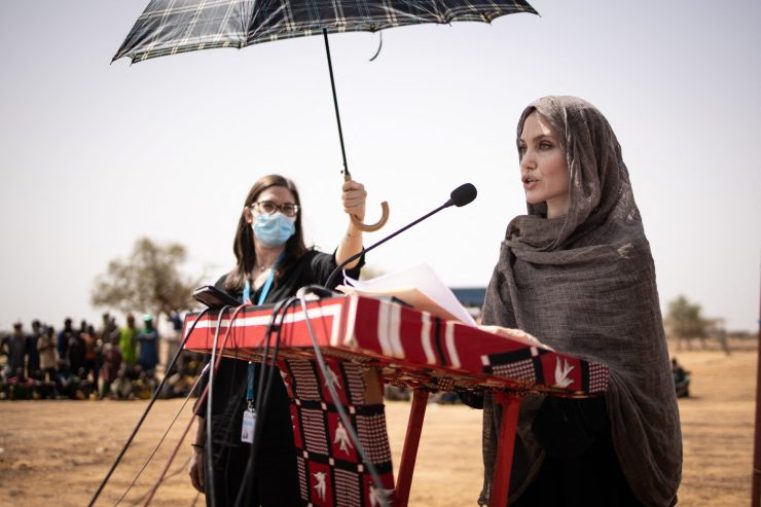Multi-Award-winning actor, Angelina Jolie yesterday visited a refugee camp in Burkina Faso sheltering thousands of Malians who have fled jihadist violence in the region.
Africa Today News, New York gathered that Jolie visited the camp at Goudebou, in the northeast of the landlocked west African country, as part of her role as an ambassador for the UN refugee organisation, the UNHCR.
Jolie arrived by helicopter accompanied by Burkina Faso’s Foreign Minister Alpha Barry for a ceremony to mark World Refugee Day.
Read Also: Twin Attacks In Burkina Faso Kill 16
Speaking to reporters after her visit she said; ‘I have marked this day every year for 20 years with refugees in different countries’.
She went on to add that; ‘I have never been as worried about the state of displacement globally as I am today’.
‘The truth is we are not doing half of what we could and should to find solutions to enable refugees to return home — or to support host countries, like Burkina Faso, coping for years with a fraction of the humanitarian aid needed to provide basic support and protection.’
An attack in March last year forced some 9,000 refugees, sheltering there despite previous raids, to flee — and caused its de facto closure.
Since December, the Burkinabe authorities and the UNHCR have been relocating the refugees there, having stepped up security at the camp.
Africa Today News, New York gathered that there are now more soldiers posted at a new barracks which has increased patrols.
Between December and July, nearly 11,000 people from towns in Burkina Faso’s north have returned to Goudebou, said the UNHCR.
Since 2012, around 22,000 refugees of various nationalities have found refuge in Burkina Faso, including many Malians fleeing the abuses of jihadist groups in northern and central Mali.
But Burkina has, in turn, become the target of attacks by Al-Qaeda- and Islamic State-linked jihadists since 2015 which have left more than 1,400 dead and forced a million people to flee their homes.
AFRICA TODAY NEWS, NEW YORK
